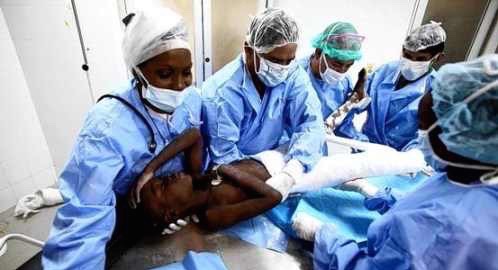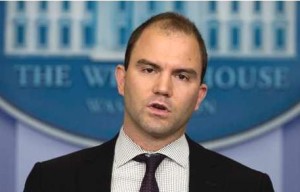
Obama is considering an end to the ‘poaching’ of Cuban doctors, Reuters says
The U.S. government “is considering putting an end to a program that encourages Cuban doctors and nurses on overseas assignments to defect,” the Reuters news agency reported Friday (Jan. 8), citing “a senior aide to President Barack Obama […] in a gesture emblematic of improving U.S.-Cuban relations.”
The program, called The Cuban Medical Professional Parole Program, was started in 2006, during the George W. Bush administration, to create a “brain drain” in Cuba’s health care system. It is administered by the State Department and the Department of Homeland Security.
[For details, click here and here.]
The program has been placed under review, now that Washington and Havana are negotiating the reestablishment of diplomatic and other relations, according to Ben Rhodes, a national security advisor to Obama.

“It’s an unusual policy, and I think — as we look at the whole totality of the relationship — [that] this is something that we felt was worth being in the list of things that we consider” for termination, Rhodes told Reuters.
Reuters does not make clear whether Rhodes leaked the information on his own or whether Reuters pressed him into admitting it. If Rhodes volunteered the information, he may be revealing an executive action that is already in progress.
Reuters cited another source, an unidentified “senior administration official,” as saying that “a decision on whether to end the program was due early this year.”
According to the Homeland Security Department, the United States has approved 7,117 applications from Cuban medics since 2006. The numbers reached a record 1,663 in fiscal year 2015.
Cuba periodically sends medical brigades abroad to countries that have suffered natural disasters or health crises, Reuters said. In 2014 and 2015, it sent 256 doctors and nurses to West Africa in the middle of an Ebola virus outbreak.
Havana has been critical of the U.S. program since its inception, calling it “a reprehensible practice” with “a perverse objective.” On Nov. 30 of last year, the daily Granma announced that its health authorities will monitor the departure of all health professionals from the island to make sure that no medical post is left unattended.
That regulation took effect last Dec. 7. Health professionals who left the country and “[fell] victim to deceitful policies that led them to abandon their missions and their homeland, may reincorporate themselves to the Cuban health system, if they so wish, and will be guaranteed jobs similar to the ones they held in the past,” the Granma article said.
According to Granma, the Cuban government “demands once again the elimination of the ‘dry-feet-wet-feet’ policy, the Cuban Medical Professional Parole Program, and the Cuban Adjustment Act, which are the root cause for the illegal emigration, the trafficking in emigrants and the irregular ingress to the United States by Cuban citizens who travel legally abroad.
“This would be consistent with the present [rapprochement], would foster the national interests of both parties, and would contribute to normalize the migratory relations between Cuba and the United States,” the article said.
Cuba’s president, Raúl Castro Ruz, restated that position in his speech to the National Assembly on Dec. 29.
“The policy of ‘dry-feet-wet-feet,’ the parole program for Cuban doctors, and the Cuban Adjustment Act continue to be the main stimulants for the irregular emigration from Cuba to the United States,” he said.
The Cuban website Cubadebate quoted Dr. Marcos Agustín del Risco, director of Human Resources of the Ministry of Public Health, as telling Radio Rebelde that the parole program represents “a problem in the quality of specialists whose brains the U.S. government selectively robs.”
The poaching of doctors on foreign missions “creates problems in our services and prevents us from fulfilling our cooperation plan [with other countries],” Del Risco said. “It is no secret” that exporting medical services “is also a form of income to solve the problems that our people face daily,” he added.
[Photo at top of Cuban doctors in Haiti.]


